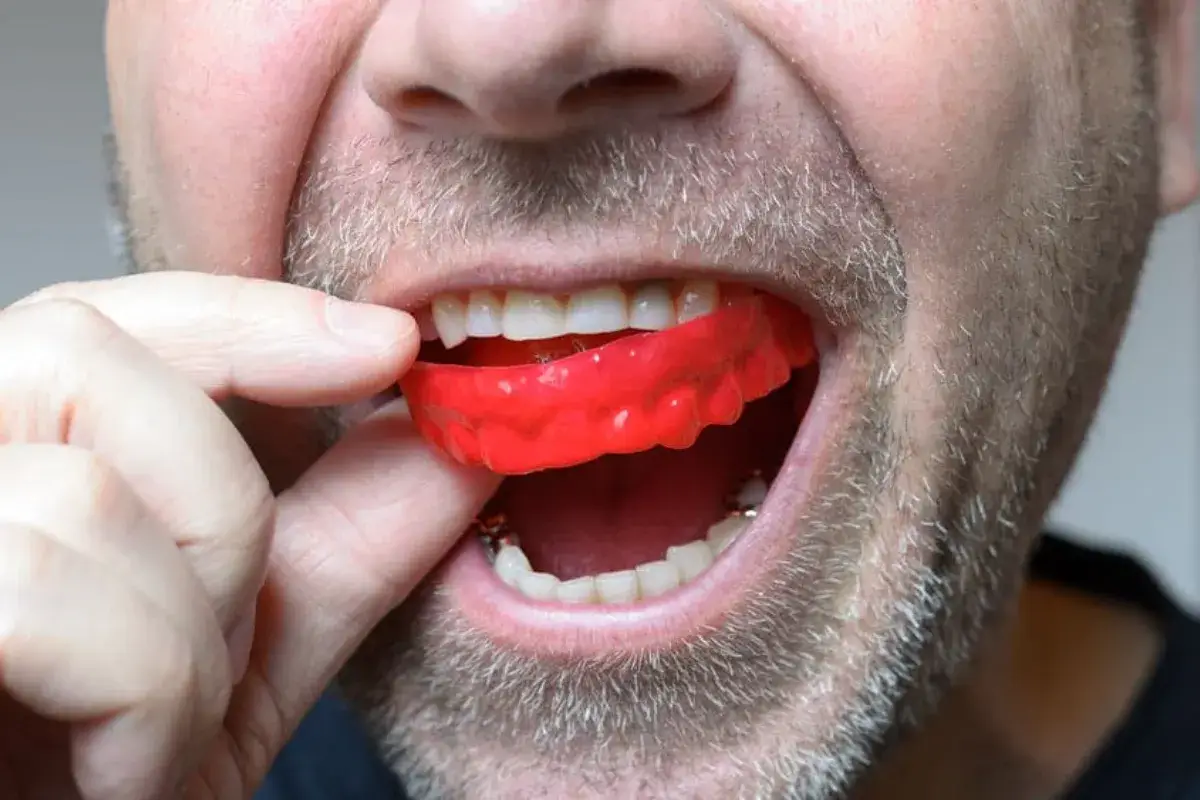

If you have played sports, then mouthguards are not a new concept to you. Many think about the concept of mouth guards as just a way of protecting themselves from extreme damage linked to sports injuries. While this is true, mouthguards are not just important for sporting activities. It depends on the type of mouthguard you are using, and what need you seek to achieve. For example, are you aware that there are mouthguards for sleeping? Read on to find out more on that matter:
It is a sleep disorder that is linked to shortness of breath while sleeping. Patients run out of breath at night, which results in snoring. However, snoring is only the outward and common symptom of sleep apnea. Others can be extremely severe, posing health risks to patients, including heart problems and blood pressure irregularities. Obstructive sleep apnea (OSA) is by far the most common type of sleep apnea, affecting over 10 million Americans. It can be caused by different things, including obesity, and other health issues.
Due to how serious having a sleeping disorder can be, several treatments can be used to alleviate the effects of sleep apnea. This is where mouth guards for sleep apnea come in place. Mild cases of obstructive sleep apnea can be treated with mouth guards. These dental appliances have to be customized to serve this specific role. To learn more about sleep apnea and oral health check out our other blog here. Or to learn more about sleep apnea and our Mandibular Advancement Device, check out our blog here.
Depending on what you are looking for, there are several different types of mouthguards. Each type of mouth guard differs in how they are made, how they fit over your teeth and the function they are made to serve.
These are pre-made mouthwear that are created to protect teeth from external impact. They can easily be found in any sports store. They feature a plastic-like material. The downside is that they are usually ill-fitting. For patients, it can lead to difficulties talking and sometimes breathing. Sleep doctors and dentists do not recommend this type, especially for patients who suffer from sleep apnea.
These are also pre-made. However, unlike stock mouth protectors, they have a better fit because of the thermoplastic material used to make them. To adjust their fit, you have to put them in hot water, and then place them over your teeth. From there, you can use your tongue or finger to align it perfectly on your teeth. Even though these allow for a more customizable fit these are still not the best types of mouthguards available in the market.
These are customized oral appliances that a dentist makes for patients with sleep apnea, among other dental-related problems. This type of mouthguard is used to treat and relieve obstructive sleep apnea because of its ability to reduce snoring and ease breathing. The mouthguards are, however, not limited to this function alone. Customized mouth guards can also be used to control teeth clenching, or even protect patients’ teeth from external injury. However, this is only possible if the design of the mouthguard is changed. It is why you have to visit a dentist who specializes in sleep disorders among other dental problems. This way, you will get the best specifications for your teeth as well as meet the needs you have. For those customized mouth guards used to treat sleep apnea, there are different types, that is,
Finding the best type of mouthguard is not just about convenience or the costs, but about the intended function. You must consider other factors like adjustability, functionality, comfort level, as well as effectiveness. It is why you must consult an expert in dental appliances, and sleep disorders, so you can find the most befitting mouth wear for your situation.
2656 Gateway Rd Suite 145,
Carlsbad, CA 92009
Mond - Wed, Fri 8:30am - 4:30pm
Thursday 8:30am - 6:00pm
Saturday By appointment only